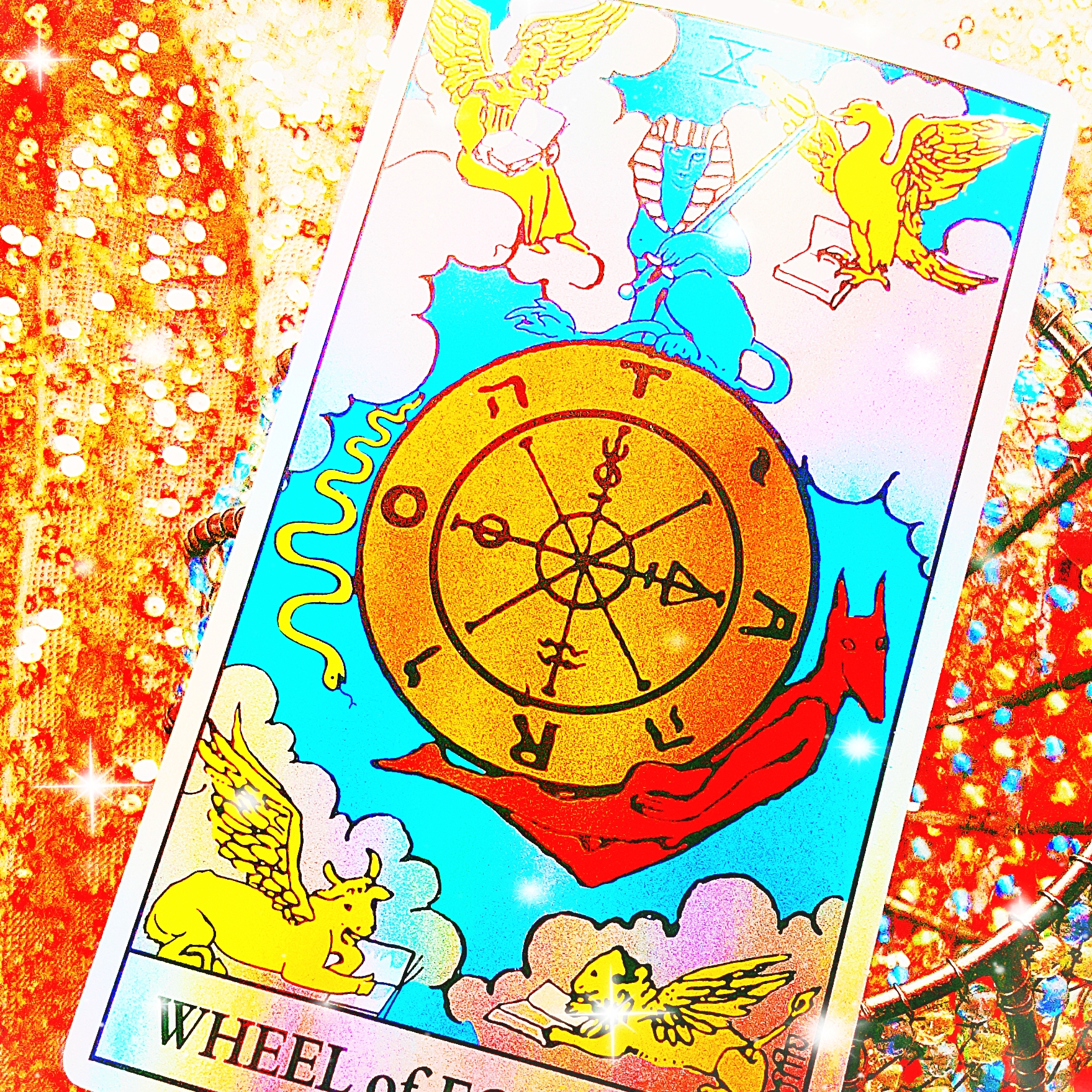“’Oh, Fortuna, blind, heedless goddess, I am strapped to your wheel,’ Ignatius belched, ‘Do not crush me beneath your spokes.’”
― John Kennedy Toole; A Confederacy Of Dunces
“Having entrusted yourself to Fortune, you must conform to your mistress’s ways. What, are you trying to halt the motion of her whirling wheel? Dimmest of fools that you are, you must realize that if the wheel stops turning, it ceases to be the course of chance.”
– Severinus Boethius (480-524)
The fictional Ignatius J. Reily is no less dramatic than the philosopher, Severinus Boethius, whose work shaped the world view of the character as created by John Kennedy Toole. The wheel as an image with a philosophy or belief attached is widespread throughout spiritual, scientific, political, and cultural practices across the globe and through time. Fortune is not generally understood as a force, or a god, that rewards and punishes at will, or that rewards and punishes at all.
The Rota Fortunae existed long before it was written as a fickle, impulsive, and untrustworthy woman by Severinus Botheius as he personified the wheel from a Greek concept into a distinctly Roman Goddess. His depiction of Fortuna would captivate people of the middle ages and carry on to define western philosophical superstition and appease the misogyny at its core. This take on Fortuna tears away our personal agency, our universal connection to one another, and serves us a toothless, powerless life. This is the philosophical equivalance of learned helplessness.
If anyone were looking for a story that fulfills the personal need for understanding and succor or a theory that creates greater human cooperation and cohesion, you will not find that with Boethius, only snivelling.
Fortuna’s wheel is animated by the fates. Her wheel requires the desire of the fates themselves to turn the wheel and life itself requires the wheel to turn in order for existence to go on. Fate is not personal, it is not punishment or reward, the fates one receives have nothing to do with Fortuna’s judgements. Fortuna spins the wheel and we get what we get. Unthinkable fates and moments of unlikely grace are experiences that happen to average people everyday. If the wheel does not spin, we do not live. If the fates are not satiated by human life, they will no longer animate the wheel, they will no longer haunt our days because we will have no days. Without the fates, we are nothing, but blame Fortuna at your own peril.
Our variable fates can not be repelled by our good deeds or seduced by our morality. We get what the wheel offers up, but Fortuna wishes us the best, she hopes we all get something nice, something that soothes and fulfils us. Fortuna makes certain that life continues, that the wheel spins and everyone gets a chance to live on earth. If you want to set yourself up for the most appealing of fates, play the best odds. Fortuna smiles on you and crosses her fingers on your behalf.
May we remember to treat Fortuna with respect.
— Michelle Embree
Author of Daydream Tarot: A Basic Guide for Visionaries



